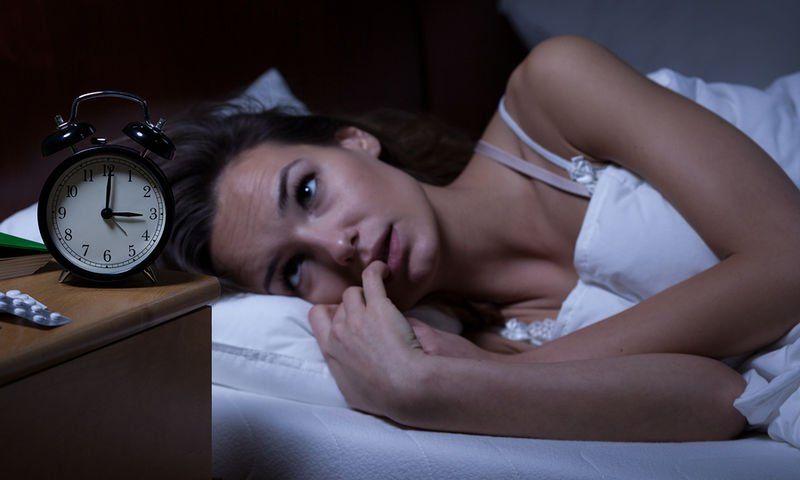
For their mental and physical health, adults need between seven and nine hours of sleep and it is important that they sleep every night. How to restore your sleep?
One of the best ways to promote sound sleep is to have a healthy sleep routine. By following a regular schedule and healthy sleep habits, the mind and body get used to a routine that includes plenty of high-quality sleep.
How to restore your sleep
Unfortunately, many factors can prevent the sleep routine. When this happens, sleep and wake times can fluctuate wildly, and a person can bounce back and forth between nights of too much and too little sleep. How to restore your sleep
Knowing how to reset your sleep routine offers a way to resolve this type of sleep inconsistency. It also provides a plan for people who want to optimize their sleep and be able to sleep as well as possible every night.
Why is a sleep routine important?
Humans are often described as creatures of habit1 because we become addicted to different patterns of behavior2 through repetition of certain cues and responses. Routines can make actions almost automatic in many aspects of daily life, including sleep.

Actively cultivating a healthy sleep routine makes it easier to get the sleep you need on a consistent basis. By creating sleep-promoting habits and cues, falling asleep quickly and sleeping through the night becomes the norm. With more repetition, the routine is reinforced, facilitating increasingly consistent sleep patterns over time.
For their mental and physical health, adults need between seven and nine hours of sleep and it is important that they sleep every night.
How is a sleep routine broken?
There are many ways to escape sleep routines and circadian rhythms:
Jet lag: Combined with rapid travel across multiple time zones, jet lag occurs when the body's internal clock is at odds with the day-night cycle at the travel destination.
Work: People who work night shifts must be awake when it's dark and sleep when the sun is out, disrupting normal circadian timing.
Advanced or delayed sleep time: Some people are extreme "early risers" or "night owls," meaning that their sleep time, also known as their sleep phase, is shifted forward or backward by several hours.
Exposure to artificial light: Biologically, the circadian rhythm evolved to match sunlight long before electricity was invented. However, the brain also responds to artificial light, meaning that constant exposure to indoor lighting as well as electronic devices such as mobile phones, tablets, televisions and computers can affect typical signals it transmits whether it's day or night.
Fluctuating sleeping hours: Many people do not have a set bedtime or wake-up time. Their sleep schedule can change from one day to the next or between weekdays and weekends, which prevents them from establishing a consistent sleep pattern.
Behavior options: Deciding to stay up late or get up early to study, play sports, or take part in social activities can throw off normal sleep routines.
Caffeine and energy drinks: Stimulants may help you feel alert, but they can disrupt the body's ability to naturally balance sleep and wakefulness, making it harder to fall asleep when needed.
Stress and emotional difficulties: Many sleep problems are linked to stress, anxiety, depression and other emotional or mental health problems. These conditions can cause the mind to race when it's time to sleep or cause daytime sleepiness when you should be awake, dashing hopes for a consistent and healthy sleep routine.

How can you adjust your sleep routine?
Adjusting your sleep routine starts with consistency as a priority. Habits and routines are powerful precisely because they are repeated over and over to create a pattern.
A key first step is to reset your sleep schedule. Choose a bedtime and wake-up time that you can stick to and that gives you plenty of time to get the sleep you need. Follow this schedule every day, even on weekends.
At first, you may have a hard time adjusting to this new sleep schedule, and that's normal. A new routine won't feel normal right away. it takes time to get used to. How to restore your sleep
To gradually adjust to a new sleep schedule, you can make adjustments in 15- or 30-minute increments over a series of days. You can also focus on your wake-up time first, creating a consistent part of your schedule, and then use the tips outlined below to modify your sleep habits so you can gradually get used to sleeping at your scheduled bedtime.
What are the best tips for getting your sleep routine back on track?;
There are many elements to a healthy sleep routine. Establishing a consistent sleep schedule is a start, but other steps can help you get the sleep you need.
Sleep hygiene plays an essential role in the effectiveness of your sleep routine. A fundamental part of sleep hygiene is making sure your daily habits and sleep environment are conducive to sleep and working in your favor:
Tips
- Get a daily dose of natural light: Because daylight is crucial to your circadian rhythm, exposure to natural light can promote better synchronization7 of your internal clock.
- Reduce artificial lighting at night: Keeping your lights on too late into the night can prevent your body from properly transitioning to sleep. Try using a dimmer or a low wattage bulb to minimize the brightness of the interior lighting.
- Reduce evening screen time: Cell phones and other devices are sources of excessive mental stimulation and emit blue light that can affect circadian timing. To avoid the negative effects of screen time on sleep, try not to use your phone, tablet or laptop for at least an hour before bed.
- Engage in physical activity: Regular exercise is good not only for your cardiovascular health but also for your sleep. You don't have to be a triathlete to get these benefits. even mild physical activity such as walking can be beneficial and is a great opportunity to be exposed to daylight. If you're going to do vigorous exercise, try to finish your workout at least an hour before bed.
-
Have a bedtime routine: Continuous cues can play a powerful psychological role in routines. For this reason, try to follow the same steps every night before going to bed, such as dimming the lights, reading or stretching quietly, putting on pajamas and brushing your teeth. Over time, these actions become cues that tell you it's time to sleep.
- Develop a personal relaxation plan: Being able to relax both mentally and physically goes a long way towards falling asleep easily. Whether it's meditation, yoga, listening to relaxing music, reading, or another activity, make time in your bedtime routine for any relaxation method that allows you to wind down.
- Be careful with naps: There are times during the day when your energy level drops and you may be tempted to sleep. While the siesta can be restorative in some cases, it can disrupt your sleep routine if you're not careful. As a general rule, try to keep naps to less than 30 minutes and only in the early afternoon so that it doesn't make it harder to fall asleep at night.
- Limit alcohol and caffeine: Both alcohol and caffeine can be detrimental to a healthy sleep routine. Alcohol makes you drowsy, but it affects your sleep cycle, making you prone to awakenings and poorer quality sleep as the night goes on. Caffeine makes you wired and alert and can linger in your system, frustrating your attempts to fall asleep at bedtime. As a result, it is best to eliminate or reduce alcohol and caffeine consumption, especially in the late afternoon and evening.
- Cultivate a welcoming sleep environment: You want your bedroom to be quiet and dark to avoid disturbance. A cool but comfortable temperature and relaxing scents, such as lavender, can promote relaxation and provide cues for sleep. Finding the best mattress, pillow and bedding can make your bedroom a haven of comfort and rest.

Talk to your doctor
If you have significant sleep problems, talk to your doctor about the best way to restore your sleep routine. Depending on the causes of your sleep difficulties, a doctor may recommend treatments to adjust your sleep routine such as:
- Melatonin: This hormone is naturally produced by the body when it gets dark and helps stabilize the circadian rhythm and promote sleep. For certain sleep conditions, melatonin supplements can help initiate a new sleep pattern.
- Light therapy: This treatment involves sitting in front of a high powered lamp for a short period of time, usually in the morning. The high dose of light is designed to help correct a misaligned circadian rhythm.
- Cognitive behavioral therapy for insomnia (CBT-I): This type of therapy works to identify and redirect negative sleep-related thoughts and behaviors while building a plan for a healthier sleep routine.

No Comments